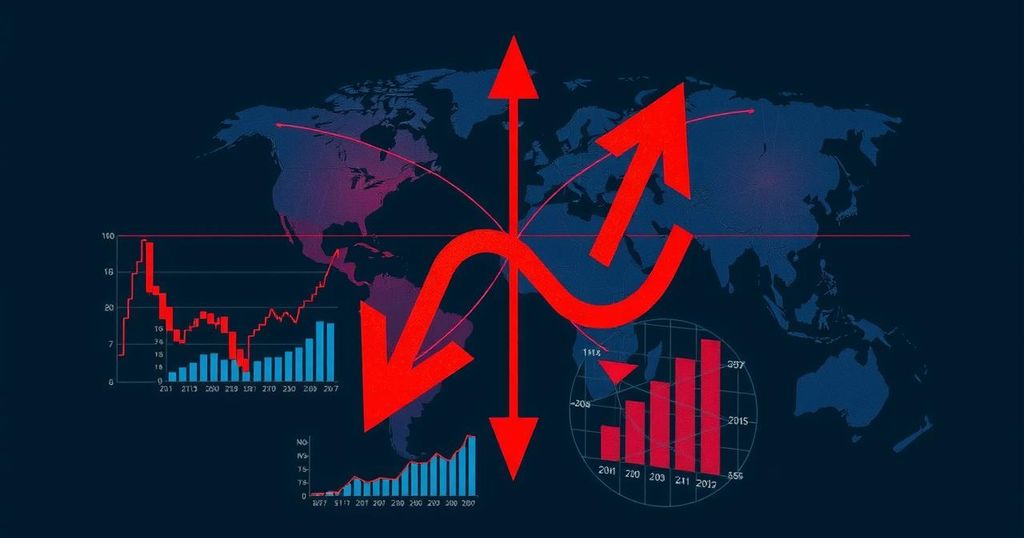Trump Threatens Secondary Tariffs on Russia and Iran Amid Negotiations

President Trump has threatened to impose secondary tariffs on Russia and Iran if they disrupt peace negotiations. His critical comments towards Putin indicate a shift in stance, where he holds Russia partially accountable for the ongoing conflict in Ukraine. Additionally, he remains open to military action concerning Iran’s nuclear ambitions if diplomatic measures fail.
President Trump recently expressed his most critical stance on Russia by threatening to impose tariffs on countries that purchase oil from Russia. This warning was issued during an interview on “Meet the Press,” where he pointed out his frustration with the ongoing negotiations for a peace deal in Ukraine. Trump suggested that tariffs ranging from 25 to 50 percent could be applied if negotiations failed, indicating he would also address Iran similarly in another context.
During his discussion with Kristen Welker, Trump indicated that he might hold Russia accountable for the continuation of conflict in Ukraine. He emphasized that should he determine Russia is to blame, he would impose secondary tariffs on Russian oil. This term refers to tariffs on imports from nations that engage with targeted countries under his foreign policy strategies.
Historically aligned with Putin, Trump’s recent remarks juxtapose his previous avoidance of direct criticism towards Russia. He has avoided blaming Russia for initiating the war and labeled Ukrainian President Zelensky as a dictator while failing to extend the same criticism towards Putin. Trump’s recent comments underscore his willingness to utilize tariffs as leverage in achieving foreign and domestic policy objectives.
Additionally, Trump voiced his displeasure with Putin regarding comments questioning Zelensky’s credibility and prospect of new Ukrainian leadership. He warned that such statements could hinder negotiations and emphasized the importance of stable leadership for progressing towards peace.
A limited truce between Russia and Ukraine exists but lacks durability, with ongoing doubts from Ukraine about its longevity. In connection to negotiations regarding Iran’s nuclear ambitions, Trump asserted a readiness to engage in military action should diplomatic efforts fail.
In an earlier correspondence with Iran’s supreme leader, Trump urged direct talks to prevent the nation from advancing its nuclear program, asserting a preference for diplomacy over confrontation. His focus on imposing secondary tariffs reflects his broader strategy of exerting economic pressure on countries involved in complex international issues.
Trump’s approach includes recent executive orders aimed at sanctioning countries engaging with Venezuela’s oil market due to serious allegations against the Venezuelan government. Furthermore, experts in trade and sanctions express skepticism regarding the enforcement of existing sanctions and the feasibility of newly proposed tariff measures against Russia and Iran.
In summary, President Trump’s recent threats of secondary tariffs against Russia and Iran highlight his critical stance on countries that undermine peace negotiations. His remarks reflect an evolving foreign policy approach that combines economic sanctions with diplomatic efforts, raising questions about the feasibility and enforcement of such measures. As negotiations continue, the complexities of international relations, particularly involving Russia and Iran, remain a challenging landscape for U.S. diplomacy. Overall, Trump’s tactics signify a readiness to leverage tariffs for achieving desired outcomes in foreign policy.
Original Source: www.nytimes.com







